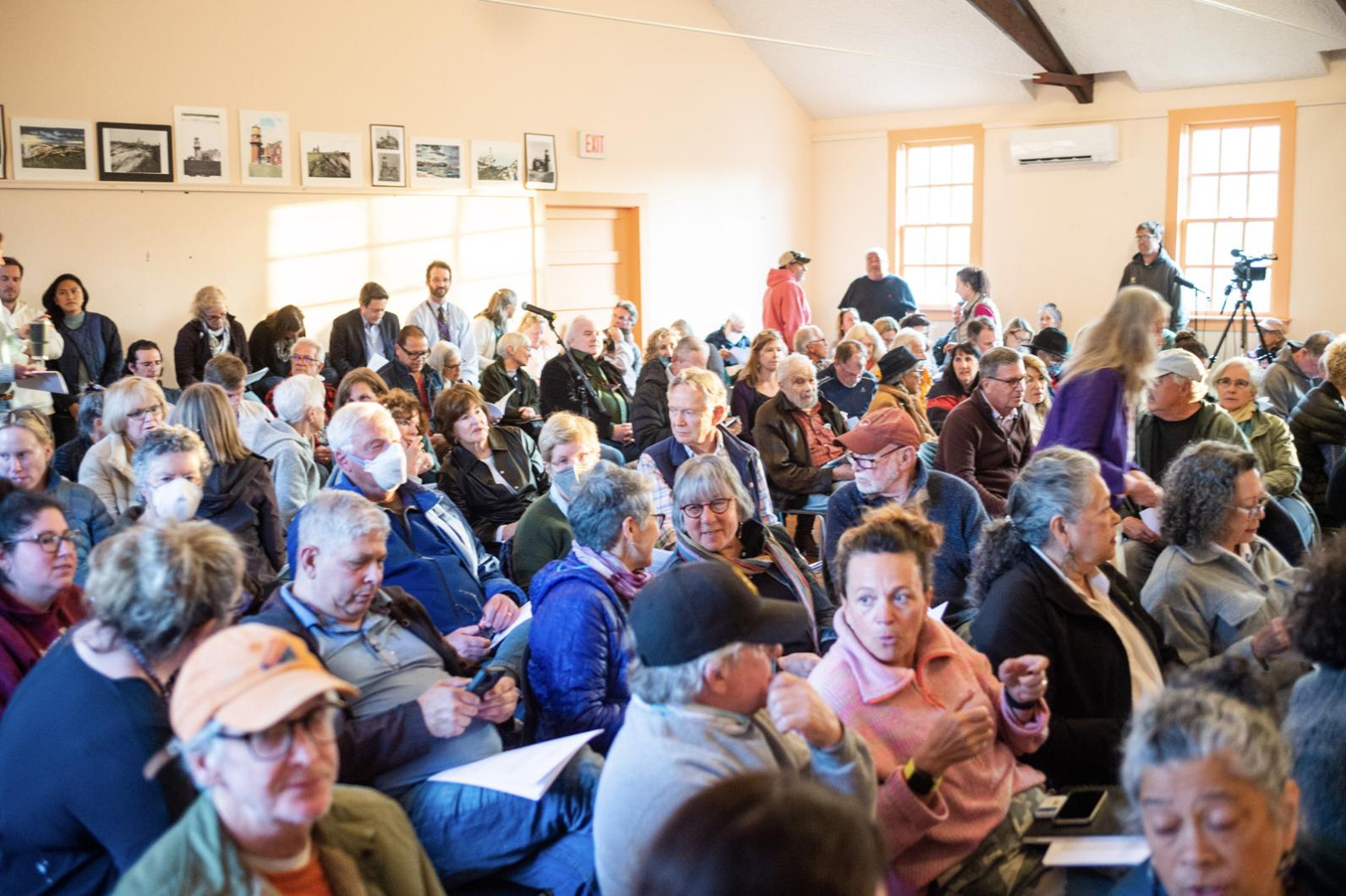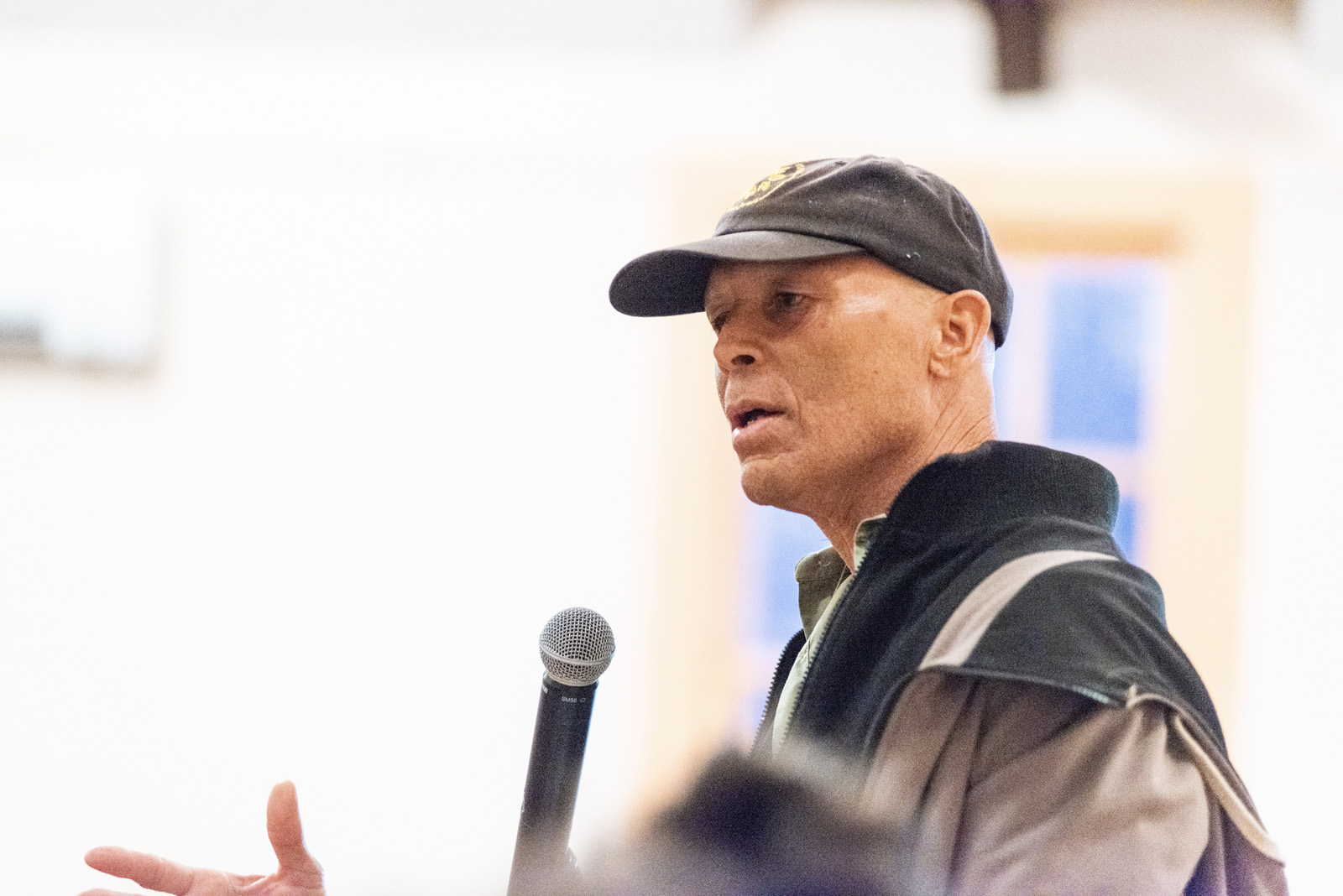Aquinnah became the third Island town to vote down its share of the Martha’s Vineyard Regional High School operating budget Tuesday, sending school officials scrambling to craft a new financial plan. The 50-47 vote at annual town meeting underscored an ongoing division Islandwide over a plan to use artificial turf on the school’s playing fields.
The school budget requires approval by four of the six Island towns in order to be adopted. It was previously rejected by voters in West Tisbury and Chilmark; earlier, the budget passed in Edgartown, Oak Bluffs and Tisbury.
While the vote was on the high school budget, the protest is over the school committee’s continued legal spending on a lawsuit against the Oak Bluffs planning board, which has denied the school’s plan to use artificial turf out of concern about the potential harm to the Island’s water quality. The school committee contends the project is exempt from local zoning under state law.
The school committee, which is itself closely divided over the issue, was set to meet Thursday, May 11 to talk about the lawsuit and next steps for the budget.
Meanwhile, school officials began dealing with the practical impacts of an unapproved budget.
If the budget issues aren’t resolved by the start of the next fiscal year in July, the high school will continue to operate under monthly installments of 1/12 the 2023 budget. That budget was about $518,000 less than the one proposed to voters this town meeting season, potentially creating a funding crunch for administrators.
Schools superintendent Richie Smith said Thursday the district talked to high school faculty about the budget situation and explained the process moving forward. The district will work to reallocate funds to keep teachers on, he said, despite the half-million dollar difference in the budget the school was hoping for.
“That’s going to be a challenge to find,” he said.
According to state law, school officials have 30 days to present a new budget to the three up-Island towns again for approval “on the basis of the issues raised” by voters.
Based on the sentiment of West Tisbury and Chilmark town meetings, school committee chair Robert Lionette said he felt that meant initiating budget talks by scrutinizing the legal budget and potentially a school contingency fund.
“I think those are the two areas we’ll probably take a look at,” he said. “Those seem to be the starting point of the conversation.”
“It’s a really tight timeframe,” said Mr. Lionette, who made the motion to vote against the budget at Chilmark town meeting. “We’ve got some heavy lifting in front of us right now.”
The issue of using artificial turf on playing fields at the high school has been debated for years and the district has been pursuing it as part of a revamp of the school’s athletic facilities.
The project, which also includes a new track and renovating several other grass fields, was approved by the Martha’s Vineyard Commission in 2021, but has been on hold since it was rejected by the Oak Bluffs planning board.
Last week, the regional high school committee said it was seeking to settle the legal appeal and voted to not use any of the 2024 legal budget to fund the case.
That didn’t seem to assure a majority of Aquinnah voters, who spent most of an hour focused on spending on the turf field litigation.
David Vanderhoop made the motion to amend the town’s portion of the budget from $432,432 to zero.
“If we bring this down to zero, it means you have to work harder,” he said.
Meg Bodner said she believed that the school committee should be focused on education, not litigation.
At town meeting, Mr. Smith said that rejecting the budget would have an effect on education.
“It will impact kids,” he said. “I need folks to understand that.”
School officials have said that if the budget failed, the school would be unable to extend contracts on June 1 to teachers and other employees, potentially affecting not just the high school but other shared programs for students with special needs.
High school principal Sara Dingledy warned voters that this could impact two Brazilian instructors who cannot stay in the U.S. during a lapse in employment, and others worried this could hurt the reputation of the school, making it even harder to hire employees.
The school budget hasn’t been voted down in recent memory, Mr. Smith said Thursday, but the district does have some familiarity with the working on the 1/12 budget installments. The measure was implemented during the onset of the pandemic in 2020 when town meetings were unable to convene.
Mr. Smith declined to say where cuts in the budget might come from, but he said the plan is to find them while at the same time helping soothe the concerns of the up-Island voters.
Mr. Lionette said dropping the lawsuit against the Oak Bluffs planning board and coming up with a different field proposal had the potential to also assuage voters, as well.
“We’ll see if the committee has the stomach for that kind of conversation tonight,” he said Thursday.
The Oak Bluffs planning board was also supposed to meet in executive session Thursday to talk about the lawsuit. The school had asked a state Land Court judge to rule on the case without going to a full trial. That request hasn’t been ruled on yet, though the court this week scheduled a hearing on the matter in July.
Brooke Kushwaha contributed to this report.









Comments (2)
Comments
Comment policy »